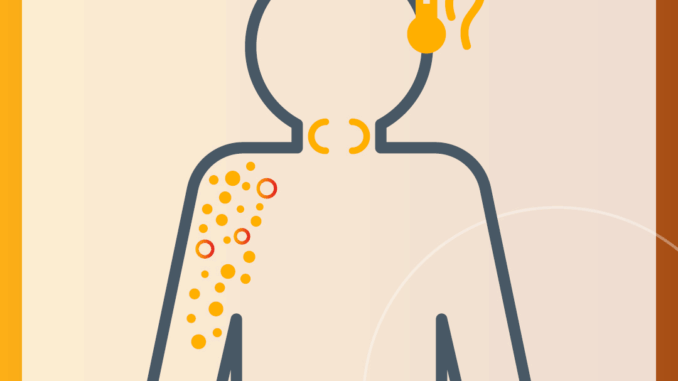
Monkeypox awareness is crucial in combating the recent mpox virus outbreak, which has raised alarms globally since its confirmation by the World Health Organization in May 2022. This zoonotic virus, historically tied to animal transmission, has now demonstrated its ability to spread within human communities, especially impacting sexual health demographics. Recent studies reveal a concerning lack of recognition among sexual medicine experts regarding mpox symptoms, complicating preventive education and emergency response strategies. Furthermore, diminished smallpox vaccine rates and increased international mobility have likely fueled the monkeypox outbreak, necessitating enhanced physician education to better equip healthcare providers. As we navigate this evolving health crisis, the role of informed healthcare practices and awareness becomes increasingly vital in curbing the spread of the mpox virus.
Awareness regarding the mpox virus is paramount as we face a serious health threat associated with this zoonotic orthopox virus. The recent instances of community transmission outside of traditional endemic areas underscore the urgency for education among medical professionals, particularly in the field of sexual medicine. With the outbreak linking increased sexual interactions and travel, healthcare workers must familiarize themselves with the clinical signs of this viral infection. Increased focus on understanding the implications of this newly emerging health risk is essential, as public health safety largely depends on the ability of physicians to recognize and manage cases effectively. Knowledge gaps must be urgently addressed to ensure readiness for potential future outbreaks.
Understanding Monkeypox: An Overview of the Mpox Virus
Monkeypox, scientifically known as mpox, is a zoonotic virus that has gained significant attention following an international outbreak reported by the World Health Organization in May 2022. Originating from areas in West and Central Africa, this virus is now spreading beyond its endemic regions, marking a pivotal shift in its transmission dynamics. The mpox virus can manifest in various ways, including rashes and lesions similar to those seen in smallpox, which have been found on both the skin and mucosal surfaces. Understanding the clinical presentation of mpox is crucial for effective diagnosis and management, especially among healthcare providers in sexual medicine.
Recent studies have highlighted low awareness levels of mpox among professionals in sexual medicine, with troubling statistics revealing that only a fraction of specialists can identify mpox lesions. Since sexual medicine experts frequently encounter patients with skin-related issues, increasing familiarity with this virus and its manifestations is crucial for patient care. As the population and international travel rates continue to rise, a comprehensive understanding of zoonotic infections such as mpox becomes essential to enhance clinical preparedness and patient management.
Frequently Asked Questions
What is the Monkeypox (mpox) virus and why is it important for sexual medicine experts to be aware of it?
The Monkeypox virus (mpox) is a zoonotic orthopox virus that has recently caused an international outbreak, marking the first sustained community transmission outside of endemic regions. Awareness among sexual medicine experts is crucial because they may encounter mpox lesions and should be knowledgeable about its clinical manifestations and transmission routes, especially as they relate to sexual health.
How has the Monkeypox outbreak affected awareness among sexual medicine experts?
The Monkeypox outbreak has highlighted significant gaps in awareness among sexual medicine experts. A survey during a major conference revealed that only 25.8% recognized mpox lesions and less than half were knowledgeable about vaccination recommendations. This gap emphasizes the need for improved education and training in recognizing and managing mpox.
What factors contributed to the Monkeypox outbreak affecting sexual medicine practices?
Multiple factors contributed to the Monkeypox outbreak, including declining smallpox vaccination rates, increased international travel, and changes in sexual interactions. These factors can influence the transmission dynamics of mpox, making it essential for sexual medicine experts to understand and address these risks in their practice.
What are the key clinical presentations of Monkeypox (mpox) that sexual medicine experts should recognize?
Sexual medicine experts should be able to recognize various clinical presentations of Monkeypox, including characteristic lesions on the skin and anogenital areas. Unfortunately, awareness of these specific lesions is low among experts, with many lacking adequate knowledge of symptom recognition, which can hinder prompt diagnosis and management.
Why is physician education on Monkeypox (mpox) critical for improving public health?
Enhanced physician education on Monkeypox is critical for improving public health as it empowers healthcare providers to recognize, diagnose, and manage cases effectively. With rising rates of mpox, educating medical professionals can help mitigate the risk of outbreak spread and ensure better patient care within healthcare systems.
What should be included in physician education initiatives regarding the Monkeypox virus?
Physician education initiatives regarding the Monkeypox virus should include training on its clinical manifestations, transmission modes, the importance of vaccination, and management practices. Addressing the identified knowledge gaps will prepare sexual medicine experts to deal with potential outbreaks more effectively.
| Aspect | Details |
|---|---|
| Study Title | Awareness of monkeypox virus among sexual medicine experts is low: a multi-institutional survey |
| Publication Date | 17 April 2025 |
| Authors | Muhammed A. M. Hammad et al. |
| Survey Participants | 97 out of 960 attendees |
| Key Findings | Only 25.8% recognized mpox lesions; 15.5% aware of anogenital lesions; 42.3% knew vaccination recommendations. |
| Need for Action | Significant gaps in awareness highlight the need for enhanced education and awareness initiatives among sexual medicine experts. |
Summary
Monkeypox awareness is crucial in today’s healthcare landscape, as highlighted by a recent survey showing low recognition of mpox among sexual medicine experts. This knowledge deficit underscores the urgent need for improved education and public health initiatives to combat potential outbreaks of this zoonotic virus. To enhance patient care and health management, targeted efforts must be made to bridge the information gap regarding monkeypox.
Leave a Reply